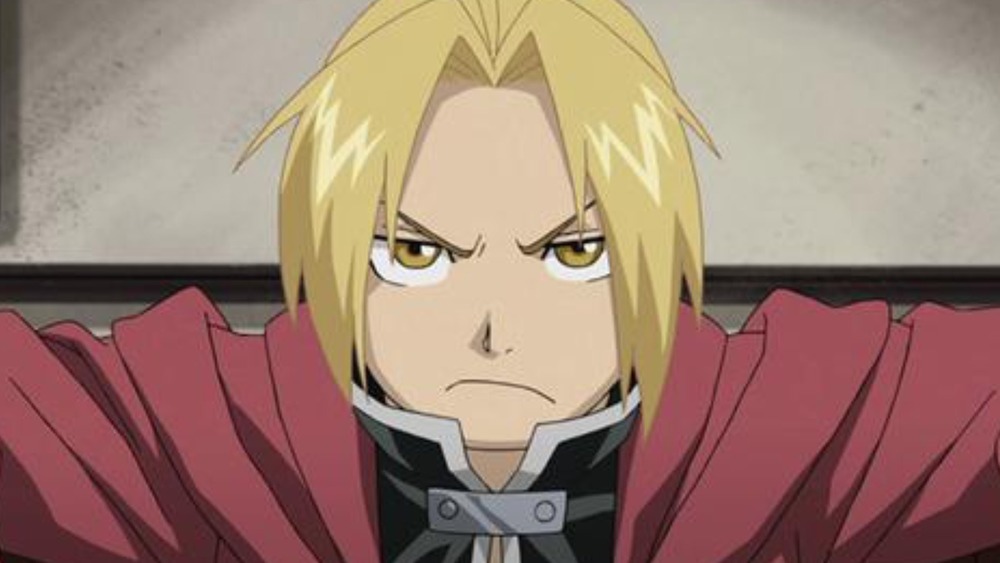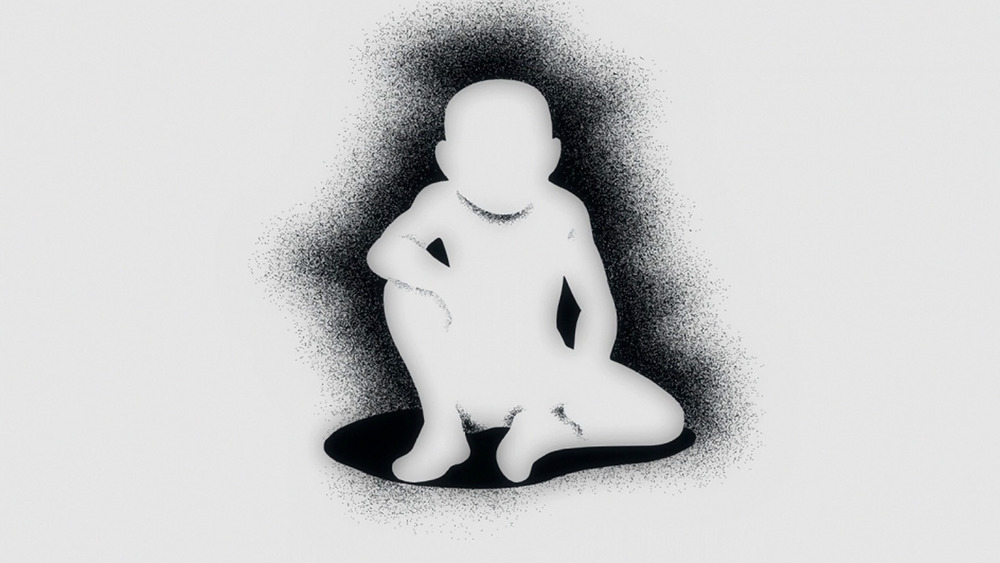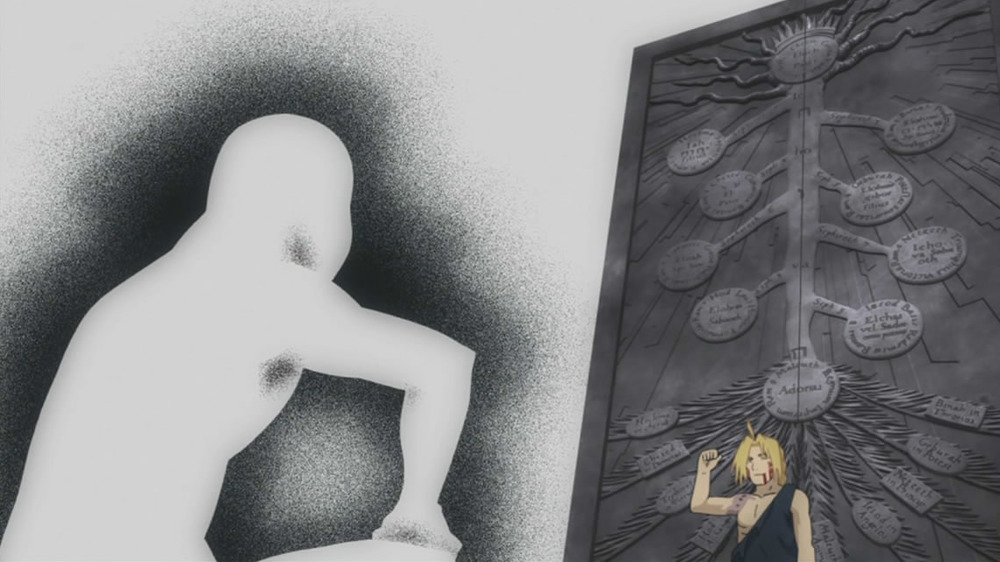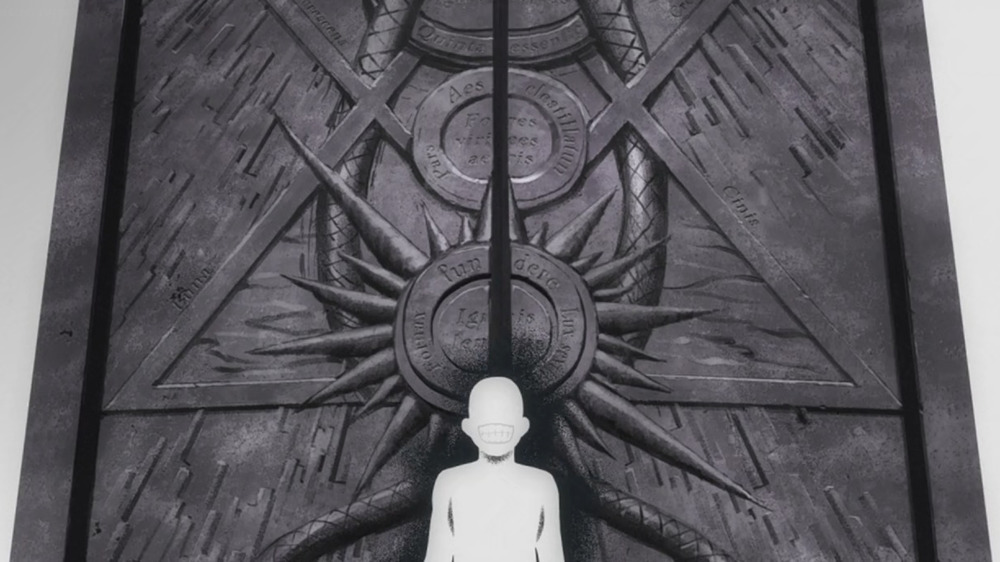The Real Meaning Of The Truth In Fullmetal Alchemist: Brotherhood
Throughout its five-part run, Fullmetal Alchemist: Brotherhood mixes difficult, philosophical concepts with thrilling action. The series' success stems from the fact that it was able to tell a meaningful story without confusing or boring its audience. That doesn't mean that the show is lacking for big ideas, though.
After all, the series is set in a universe where alchemy is possible. In Fullmetal Alchemist: Brotherhood, alchemy is a form of science that allows certain gifted individuals to transform matter. Although it looks like magic to those in the real world, alchemy is actually governed by a fairly strict set of rules.
One of the most important is the law of equivalent exchange, which states that nothing can be created without an equal amount of matter being destroyed. It's the central, governing principle of the show, and one that Edward Elric and his brother Al butt up against. As the Elric brothers delve into the secrets of alchemy, they also meet The Truth, one of the show's most complicated figures.
The Truth is the closest thing to a god in Fullmetal Alchemist: Brotherhood
Ed and Al first see The Truth after they attempt to bring their mother back to life. Human transmutation, or the creation of human life, is strictly forbidden by the laws of alchemy, but Ed and Al's grief is so severe that they attempt it anyway. Attempting human transmutation opens the Gate of Truth, which allows those who perform it to come face to face with The Truth.
The Truth often likes to punish those who attempt to play God through human transmutation by taking the thing that they value most. In the case of Ed and Al's attempt, Al's body was taken, as was one of Ed's legs. Ed then trades his right arm for his brother's soul, which he binds with a suit of armor.
Throughout the series, we see that The Truth often enjoys the irony of taking away the things a person values most, and that's especially true for the show's final episodes.
The Truth punishes Father for his attempt to play God
Although Ed and Al receive harsh punishment from The Truth for their transgressions, this godlike figure saves his harshest punishment for Father, the villain of the entire series. In the closing episodes, The Truth punishes Father for his attempt to become a god himself, and for his decision to try to transcend humanity by ridding himself of the seven deadly sins.
The Truth says that those sins exist to give humans a chance to overcome them and prove that they're more than their basest qualities, and he banishes Father back through the gate he was summoned from.
Ed also finds a way to get his brother's body back. By sacrificing his own alchemy, he realizes that his attachment to it is less important than the love of the people around him. The Truth congratulates him and allows him to restore his brother to his actual body.
The Truth represents an uncaring god
As he's depicted in the series, The Truth is a white, featureless body that appears to whoever passes through the gate. His existence is meant to represent the basic realities of the universe, and he exists to punish humans who attempt to transcend the nature of their existence. In essence, The Truth exists in part to wield his power over those who would seek to challenge it.
Ultimately, though, The Truth also exists to shed a light on the beautiful aspects of being human. Humanity is flawed, destructive, and deadly, as Fullmetal Alchemist: Brotherhood points out.
For every flaw that they contain, though, humans are also capable of love, compassion, and justice. They're a mess of contradictions, and Father's great failing is that he does not see the good that is mixed in with the bad. The Truth is a reminder that humans should be happy with what they have and should try to make the best of the lives they lead instead of questing for immortality or to become a god.



